LIFT - Los Angeles
LIFT-LA's mission is to empower families to break the cycle of poverty. Our holistic approach, grounded in 1:1 coaching and wraparound supports, helps low-income parents achieve their career and financial goals. This includes cultivating an equitable path to economic mobility through achievement in education.
Visit this organization’s website to learn more
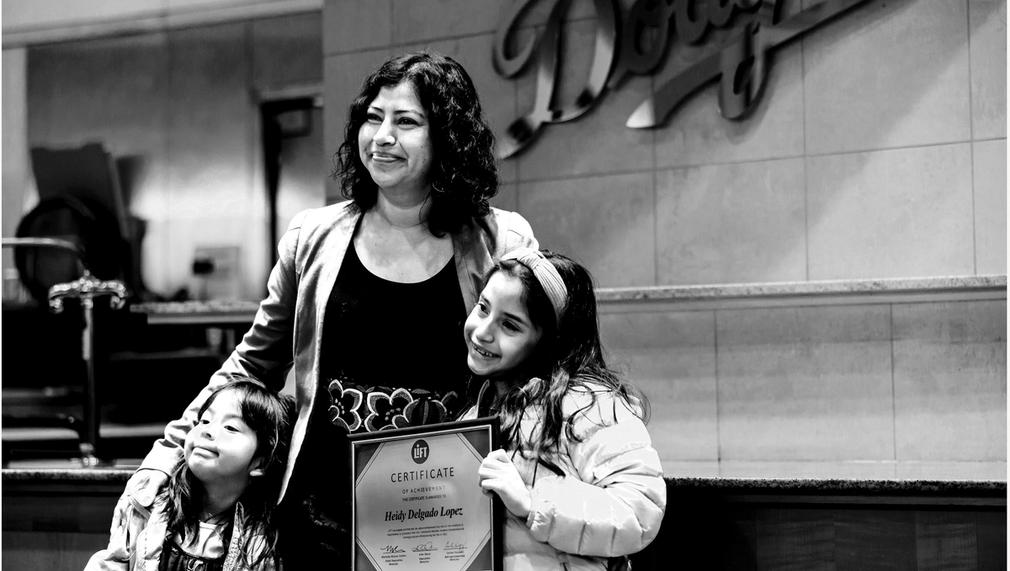
11 Submitted Ideas
 CREATE ·2025 Grants Challenge
CREATE ·2025 Grants ChallengeLIFT Entrepreneurs: Creating Pathways to Economic Mobility
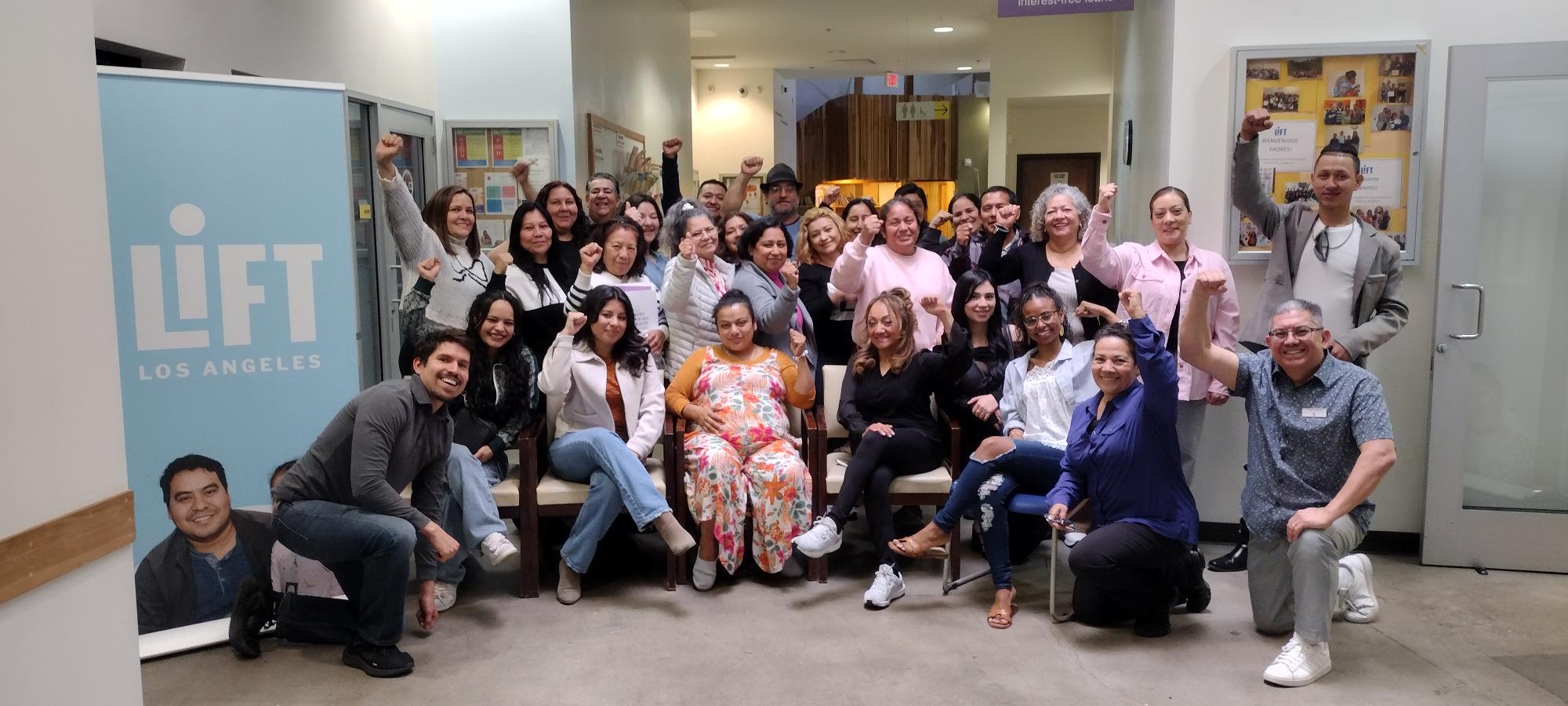
LIFT-Los Angeles empowers parents to disrupt the intergenerational cycle of poverty by building strong financial, personal, and social foundations. Through the LIFT Entrepreneurs program, we engage low-income aspiring business owners historically underrepresented in entrepreneurship, including racial and ethnic minorities and women, in a variety of business development, planning, mentoring, and support services that help transform the economic futures of their businesses, families, and communities.
 CREATE ·2025 Grants Challenge
CREATE ·2025 Grants ChallengeLIFT-LA: Empowering Families Toward Financial Freedom
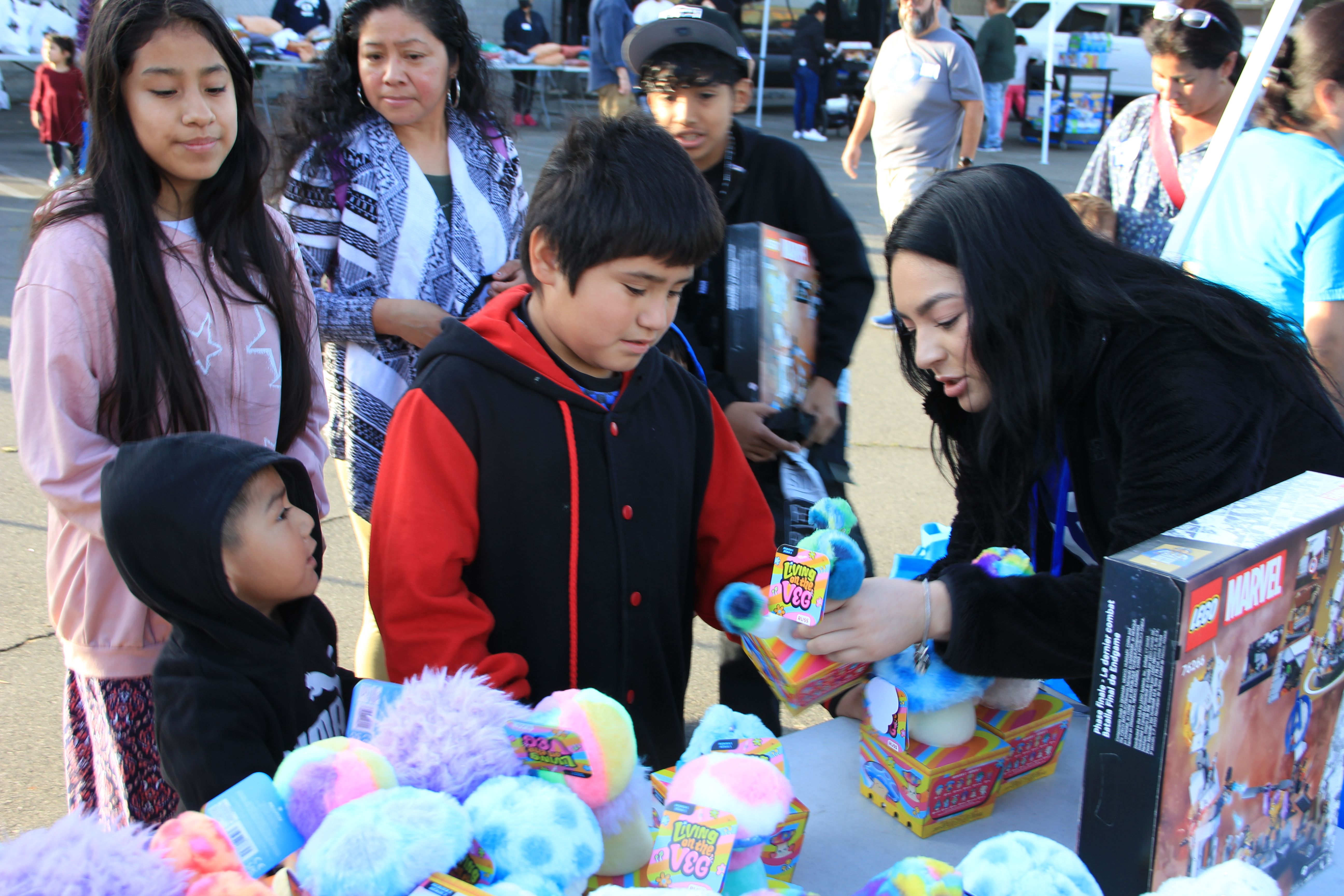
LIFT-Los Angeles empowers parents to break the intergenerational cycle of poverty by strengthening their financial, personal, and social foundations. We pair trained trauma-informed coaches in trusting relationships with parents to set and break down short-term/long-term goals–such as going back to school or improving credit–into actionable steps, increasing parents’ confidence and resilience. In addition, we provide members with $150 cash transfers every three months (up to two years) to help meet basic needs and alleviate financial stress.
 CREATE ·2024 Grants Challenge
CREATE ·2024 Grants ChallengeLIFT Entrepreneurs: Breaking the Cycle of Poverty for Parents
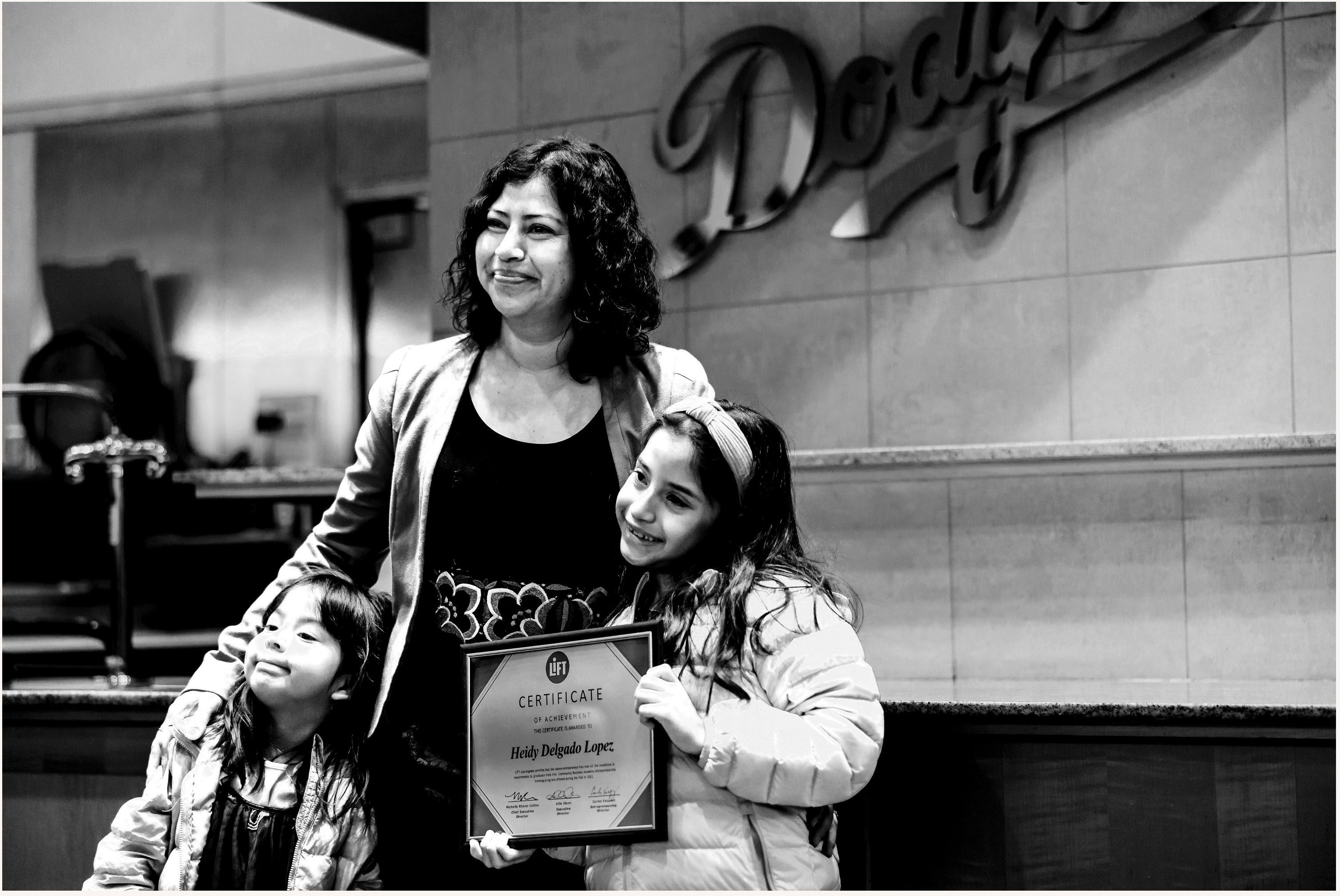
LIFT-Los Angeles empowers parents to break the intergenerational cycle of poverty by strengthening their financial, personal, and social foundations. Through the LIFT Entrepreneurs Program, we engage low-income aspiring business owners historically underrepresented in entrepreneurship, including racial and ethnic minorities and women, in a variety of business development, planning, mentoring, and support services that help transform the economic futures of their businesses, families, and communities.
 LEARN ·2021 Grants Challenge
LEARN ·2021 Grants ChallengeLIFT & LAVC: Reimagining Paths to Success for Student Parents
LIFT-LA has partnered with LA Valley College (LAVC) Family Resource Center (FRC) to break down barriers to post-secondary education attainment for the 25% of low-income students who are also raising children. We offer student parents virtual one-to-one coaching with a trauma-informed MSW intern. Pairing LIFT’s virtual coaching model with LAVC FRC’s comprehensive supports cultivates an innovative, holistic, and effective model to drive student parent success. This partnership ensures a reliable path towards economic mobility through education.
 LIVE ·2020 Grants Challenge
LIVE ·2020 Grants ChallengeLIFT’s Family Goal Fund: Moving Money into the Hands of Families who Need it Most
LIFT’s Family Goal Fund is designed to help parents build a small buffer. Not just in times of crisis like COVID-19, but to withstand the daily stressors that come with living in poverty and accelerate their progress towards long-term goals. As parents persist through LIFT’s coaching program, they receive $150 every three months that they can spend in any way they see fit— be it making a rental payment, starting an emergency savings fund, or paying for a vocational licensing exam on their path to a higher paying job.
 LIVE ·2019 Grants Challenge
LIVE ·2019 Grants ChallengeOne Emergency Away: LIFTing Los Angeles Out of Poverty and Preventing Homelessness
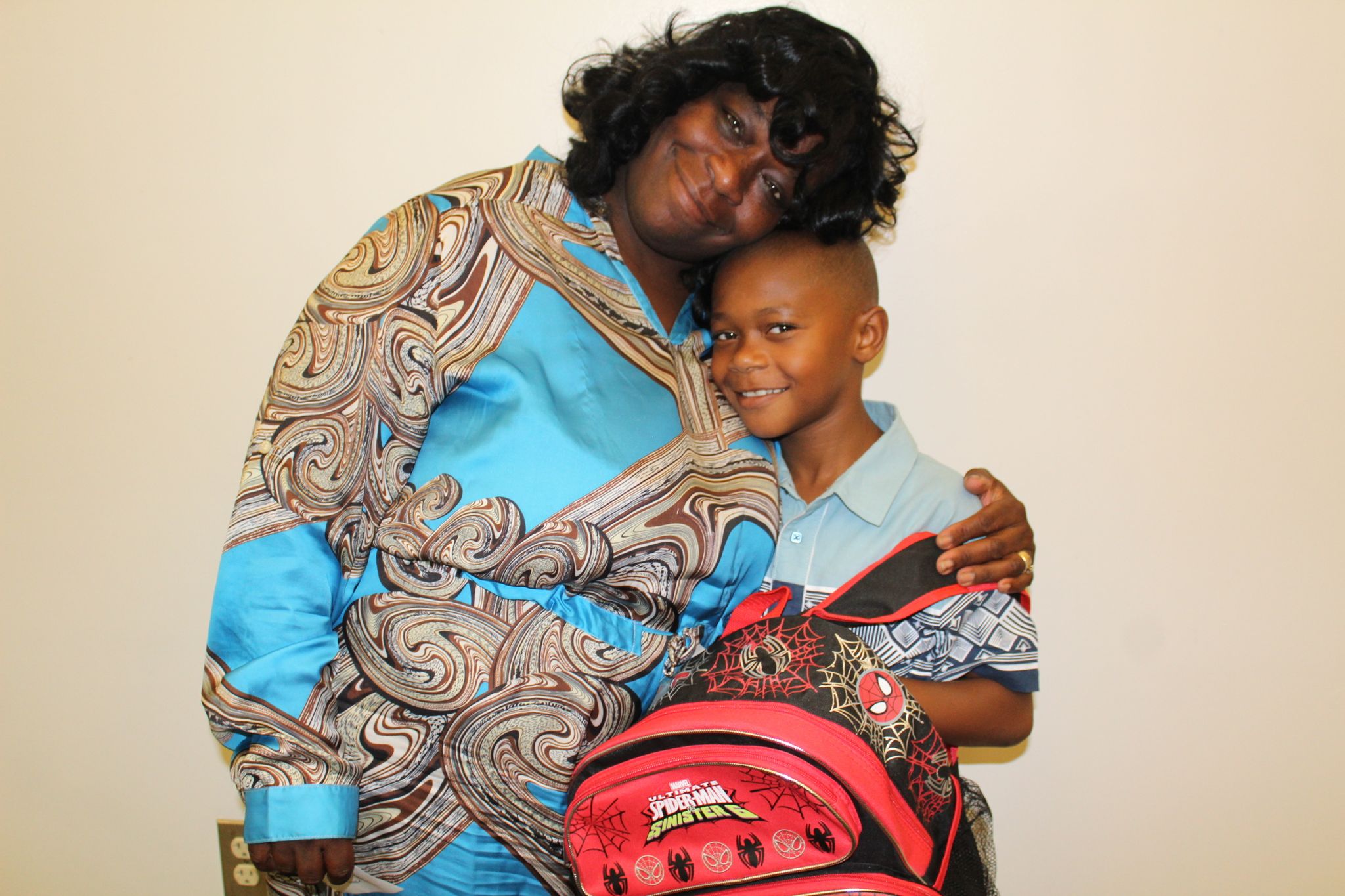
Los Angeles has one of the highest rates of homelessness in the U.S. and even more families teetering on the brink who are just one emergency away from crisis. In fact, many of our hardworking parents and caregivers (“members”) were homeless or would be homeless without our services. Through career and financial coaching that builds financial capabilities and career skills, social connections, and personal well-being, LIFT is able to empower these families with the tools they need to thrive.
 LIVE ·2018 Grants Challenge
LIVE ·2018 Grants ChallengeInvest in Parents & Connect Families Across Socioeconomic Barriers to Break the Cycle of Poverty
LIFT-LA will transform the lives of 4,000 community members and influence 100,000 Angelenos to break the cycle of intergenerational poverty for parents and children.
 LIVE ·2016 Grants Challenge
LIVE ·2016 Grants ChallengeBridging Gaps: LIFT-Los Angeles and One Degree’s Partnership to Expand Networks and Improve Lives
LIFT-Los Angeles and One Degree, two nonprofits dedicated to breaking the cycle of poverty, are leveraging technology to put wraparound supports directly in the hands of families.
 LIVE ·2015 Grants Challenge
LIVE ·2015 Grants ChallengeLIFT-LA Member2Member Project
LIFT-LA’s model is predicated on the belief that poverty is complicated, getting help should not be-- more connected families are more likely to manage crises and move out of poverty. We will augment our current model by sharpening our focus to work with parents with young children to truly break the cycle of poverty. We will build the formal and informal supports necessary to get resources directly into their hands.
 CONNECT ·2014 Grants Challenge
CONNECT ·2014 Grants ChallengeCare.Connect.Change: UpLIFTing the (people) power of social and emotional supports
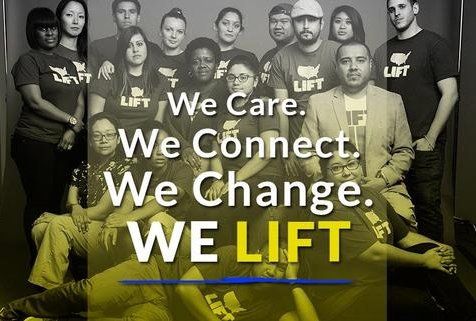
We will measure how volunteers working with members to build social and personal foundations will accelerate their move out of poverty.
- 2013 Grants Challenge
LIFTing up Constituent Voice to positively impact poverty perception practice and policy
LIFT believes that all people, regardless of socio-economic status, need the following three-dimensional supports to overcome poverty’s cycle of crisis and move ahead in life: economic resources (money in our pocket); internal capabilities (self-confidence, problem solving skills ); strong community networks (people in our corner). When clients come to LIFT-LA for support (to secure housing, food security, employment, educational opportunities) they are immediately connected with a trained volunteer advocate who partners with them to navigate through the complex social service delivery systems and map to economic security. LIFT-LA’s premise is that 1) we all have shaky ground moments, regardless of income, and deserve the same types of support in times of crisis— dignified and caring support; 2) constituent voice is needed to devise systems and allocate funds that will effectively move people out of the cycle of poverty; and 3) an empathetic response unleashes potential for both individual and institutional change. To turn up the volume on constituent voice to debunk the myths of poverty and erect more sound policy, our big idea is to bring the constituent voice to the forefront of informing and reforming the way we address poverty in LA. Myth: Poor people do not have a voice. Author and activist, Arundhati Roy states that "there is no such thing as the voiceless. There are the deliberately silenced, or the preferably unheard." There is much that nonprofits can learn from the for profit sector about the benefits of acting on customer feedback. Companies, who are more responsive see profit margins 30-40% higher than those who do not take satisfaction into account. These gains are transferable to the human service delivery. The Gates Foundation, for instance, has found that the best way to test teacher effectiveness is, well, to ask the students. Furthermore, there is direct correlation with academic performance. Applied to our social service delivery system, it makes sense that if clients are able to rate their experience, it would inform and drive more efficient and effective programs that will better the outcomes for clients and communities. LIFT-LA will develop an interface (like a Yelp App) to scale constituent voice that the county can use to evaluate the effectiveness of their programs and expenditures, and that funders can use to guide their philanthropy. Social service delivery programs will be incentivized to properly serve their customer! Myth: Only poor people face life challenges. The reality is that life is complicated for everyone no matter what race, gender, income level, zip code. So much time is spent trying to keep the pieces together--with child care, lawyers, accountants, personal assistants, family and friends-- in order to keep up the appearance having it together. LIFT-LA’s Shaky Ground Moment campaign invites celebrities and high profile public figures (those who are at the forefront of keeping up appearances) to speak up about their shaky ground moments in order to uncover a shared understanding about what we all need in order to get by in crisis—moral and material support from our networks. By elevating their voice in a way that we are not accustomed to, we strip down the sense that needing to reach out for support is a condition of poverty, while heightening the realization that a holistic and humanitarian response is as vital as material resources in times of need. Myth: Poor people are weak and lazy and systems are there to help. In reality, poverty is complicated and getting help should not be, but low-income individuals often find themselves lacking the knowledge of overcomplicated matrix of community resources to find solid footing. In order to challenge assumptions and change perception, LIFT has developed a simulation called LIFTopolis, a city where social service providers are understaffed, underfunded, and overburdened by unmanageable caseloads, much like what occurs in real life. The participants in this exercise—policymakers, philanthropists, social services professionals, etc—assume the identity, circumstances, budget, and goals of a real LIFT client navigating a room of service providers and trying to achieve their objectives (e.g. housing for the family, stable income, nutritional assistance for their children, etc). Through the experience participants gain a greater understanding of what low-income families need from a system, and they collectively build new solutions that can be taken to market and tested. Government did not design the social service system from a human-centered perspective, and thus is unable to address complicated and interconnected problems, or foster trusting relationships between service providers and the families that most need help. The Shaky Ground Campaign, LIFT Yelp App, and the LIFTopolis simulation will bring the client voice and experience at the core of guiding practice and policy change.